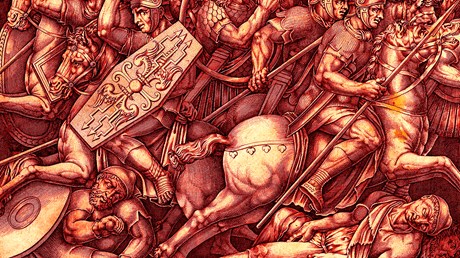Caesar boasted of thousands of civilian deaths. Christianity is the reason we mourn even one.

When he published his scandalous guide for picking up women in ancient Rome in A.D. 2, the elegiac poet Ovid recommended gladiatorial shows as a great location for finding love. Something about watching men fight to the death, Ovid suggested, just works.
Ovid’s casual acceptance of violence as a source of respectable public entertainment was nothing new. Rather, it was the norm in pre-Christian antiquity. A little over 400 years before Ovid, for example, the anonymous author of The Constitution of the Athenians complained about what he considered to be one of Athens’s greatest social ills: On Athenian streets, he sputtered, a man can’t easily tell which passersby he could strike at will. Slaves, he thought, needed more distinctive clothes so you’d know that you could hit them.
I could keep going, but you get the point: The ancient world was defined by its acceptance of pervasive violence. True, some ancients bemoaned this status quo, but they had no expectation that it would ever change.
So why are we not like this today? The answer, in a nutshell, is 2,000 years of Christianity. The change Christianity made in bringing compassion and mercy to a world that defaulted to cruelty is so complete that it is difficult for modern American Christians to fathom. We take our norms around violence for granted, but we shouldn’t. They are uniquely Christian—and uniquely worth preserving.
This difference between Christian and pagan thought is most clearly visible in how we treat civilians in war, and one of our best sources to understand the contrast is none other than Julius Caesar. Throughout the ’50s B.C., Caesar was Rome’s leading military general, campaigning in Gaul. His official aim was ...
from Christianity Today Magazine
Umn ministry


.gif)

.gif)
.gif)
